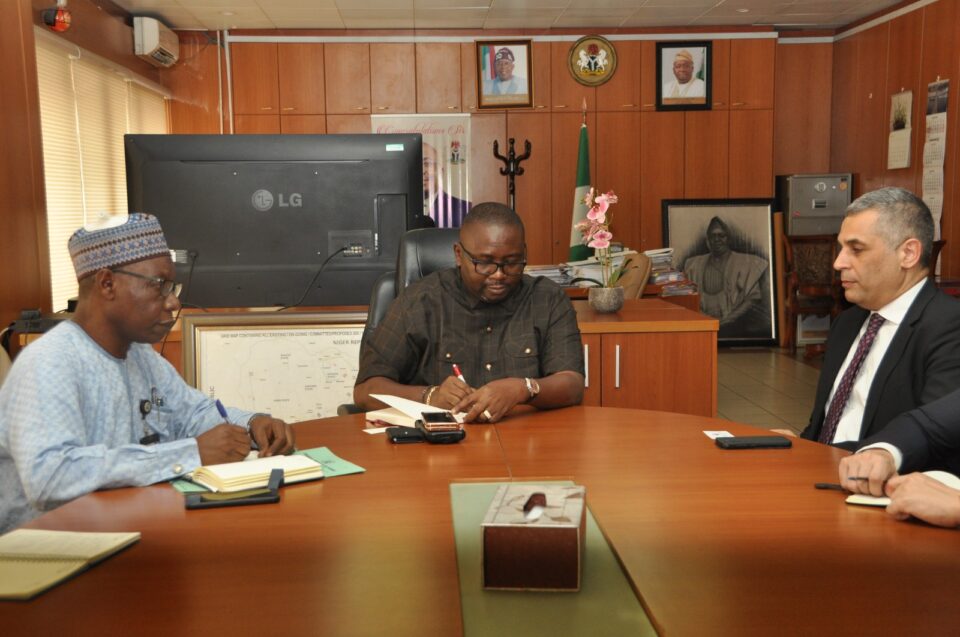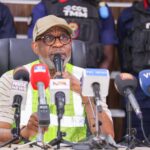By Stella Odueme
Minister of Power, Chief Adebayo Adelabu has called on global leaders to bridge the gap between energy transition and developmental finance by ensuring that justice and inclusion remain central to global efforts.
The Minister made the call while representing Nigeria at the 2025 Sustainable Energy for All (SEforALL) Global Forum which took place March 12-13, 2025 in Barbados.
The Forum, co-hosted by SEforALL and the Government of Barbados under the theme “Sustainable Energy for Equity, Security and Prosperity”, brought together global leaders to catalyse action and investment toward achieving universal energy access, climate goals, and sustainable development.
A statement by the Special Adviser, Strategic Communication and Media Relations to the Minister, Bolaji Tunji at the weekend, said while delivering his keynote address at the Global Ministerial Roundtable, the Minister reiterated the urgent need to bridge the gap between energy transition and developmental finance by ensuring that justice and inclusion remain central to global efforts.
He highlighted Africa’s minimal contribution to global emission which is less than four percent, while bearing the brunt of climate change impacts and energy poverty.
He stressed the importance of recognising the different starting points of developed and developing nations, advocating for a pragmatic energy transition plan that allows Africa to balance energy access, industrialisation, and economic growth.
“Africa cannot be forced to choose between development and decarbonisation. Transition fuels like natural gas, which Nigeria has in abundance, must be recognised as a critical bridge to a cleaner energy future,” he stated.
With over 600 million Africans still lacking access to electricity, Adelabu underscored the urgency of prioritising universal energy access alongside decarbonisation efforts. He warned that without electricity, populations would continue to rely on harmful alternatives such as fossil fuel generators and deforestation, exacerbating environmental degradation and healthcare challenges.
“Energy transition strategies must be people-centred, ensuring that rural communities and marginalised groups are not left behind. This requires financing mechanisms that support both grid expansion and decentralised renewable energy solutions,” he said.
The Minister also emphasised the importance of creating green jobs and reskilling workers in traditional energy sectors to ensure a just transition that leaves no one behind.
He called for a radical overhaul of the current financing structures, which he described as inadequate in addressing the needs of developing nations and emphasised that high borrowing costs, restrictive funding conditions, and slow disbursement processes are significant barriers to progress.
“There is an urgent need for concessional financing, risk guarantees, and innovative instruments to attract private sector investments in clean energy. Developed countries must fulfil their climate finance commitments and mobilise funds for adaptation and resilience,” he stated.
He also urged special consideration for Africa in global financing mechanisms, recognising the continent’s unique challenges and the need for a phased transition.
The Minister highlighted Nigeria’s leadership in advancing energy access and transition through initiatives like the Mission 3000 program, developed in collaboration with the World Bank, the African Development Bank, and 13 African countries. The program aims to scale energy access through grid-based and decentralised renewable solutions.
He also pointed to Nigeria’s Energy outlines a practical and inclusive pathway to achieving net-zero emissions while ensuring energy access and economic growth.
The Minister’s participation at the Global Forum and the unveiling of the USD500 million DRE Nigeria Fund by the Nigeria Sovereign Investment Authority, Sustainable Energy for All (SE4All), the International Solar Alliance, and Africa50 Group which will develop and invest in distributed renewable projects across the country further reaffirmed Nigeria’s commitment to advancing energy access and sustainable development while also showcasing the country’s potential as a key player in Africa’s energy transformation.


